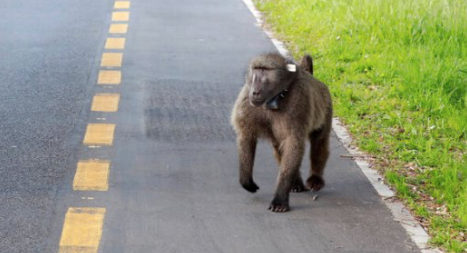Cape Town Etc would like to apologise to the City of Cape Town for publishing inaccurate information and forwarding a false narrative in relation to the action it has taken in dealing with a baboon known as Kataza.
Below are the correct facts in relation to a story published on October 21:
1. Cape Town Etc published that the Western Cape High Court had filed papers saying that the City of Cape Town’s relocation of Kataza is in contravention of the Animal Protection Act. No court has made such a pronouncement.
2. The Western Cape High Court cannot file its own papers, and the matter has not yet been served before the court.
3. The City was notified of an application submitted to the Western Cape High court by a Mr Ryno Eneglbrecht on October 5, 2020.
“The applicant is requesting the Western Cape High Court to set aside the decision to relocate the raiding male baboon, colloquially known as Kataza, from Kommetjie to Tokai. It is the City’s intention to oppose the application. This is in the best interest of Kataza, and all other baboons whose natural habitat is the mountains adjacent to urban areas in the Cape Peninsula. The City’s answering affidavit will deal with these matters comprehensively, and factually, and it will be available to the public once filed,” said Luthando Tyhalibongo, City of Cape Town spokesperson. “Kataza needs space to integrate with the Tokai troop at his own time. Some residents have been following him since his relocation and we are concerned about this human interference. The City once again appeals to all to please refrain from following or feeding Kataza.”
Kataza has been assessed on numerous occasions since his relocation, and his integration into the troop is carefully monitored
“The City’s Baboon Programme has been in existence since 2009. To date, the programme has succeeded in limiting baboon incursions into urban areas. The intention of the programme is to limit interaction between humans and baboons, to keep baboons out of urban areas where they face many dangers, and ultimately, to ensure the safety and welfare of residents and baboons alike,” Tyhalibongo added.
The original story has since been removed from our website.

